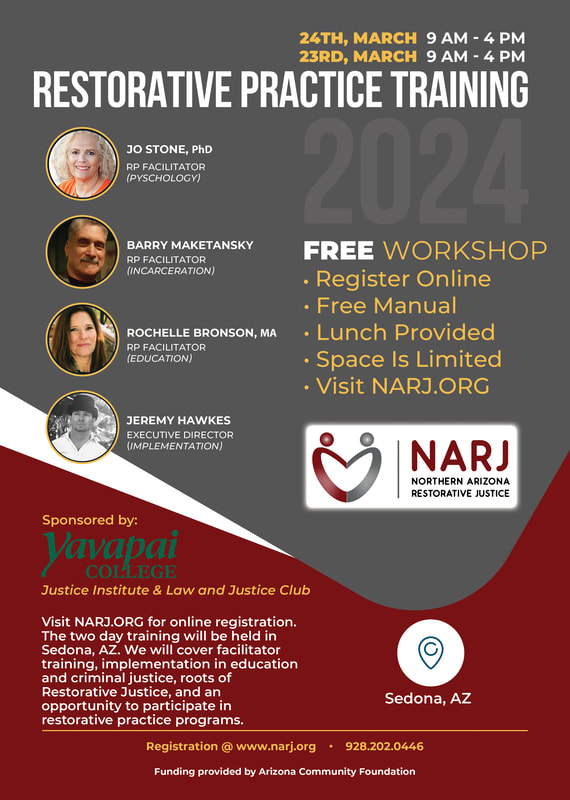Build Character. Define Shared Values. Develop A Sense of Community.
Register below for our FREE Restorative Practice Facilitator Training in Sedona, Az.
March 23rd and 24th, 2024
Northern Arizona Restorative Justice works to repair harm done to the community.
Restorative Justice is a fast-growing state, national and international social movement that views crime and wrongdoing as a violation of relationships, creating harm that needs to be repaired. Unlike the traditional justice system, in this model, justice is served not by punishing the offender, but by repairing the harm. It is so effective that 88% of the youth who participate in Northern Arizona Restorative Justice circles do not re-offend. Nationally, studies agree that 40 to 60 percent of juvenile delinquents stop offending by early adulthood.
The approach used by NARJ outperforms the national average by 40%!
Northern Arizona Restorative Justice works primarily with first-time juvenile offenders. The process brings together all parties involved, including the offender, their family, members of the community, and sometimes victims of the offense, into a safe circle for deep listening, empathy and truth-telling.
The youth share their story, as do other members of the circle, so that all can hear how the conflict occurred, how it has harmed each party (including the offender), and what is needed from the offender to repair the harm.
An agreement is then reached by which the youth is held accountable to make the necessary repairs. If successful, the case is dismissed and he or she will not have to face any further legal action.
This respectful, non-shaming approach helps youth to see themselves as valuable and contributing members of society while showing them how their actions impact others. They are given tools to make better choices in the future, families learn to communicate more authentically and effectively, and victims are given a voice and play an active role in the process.
As one parent stated, “Restorative Justice looks at what can be corrected, what can be achieved in a more positive manner. Restorative Justice was a healing process for all of us.”
Our work has a powerful impact not only on the people we work with directly, but on the larger community as a whole.
